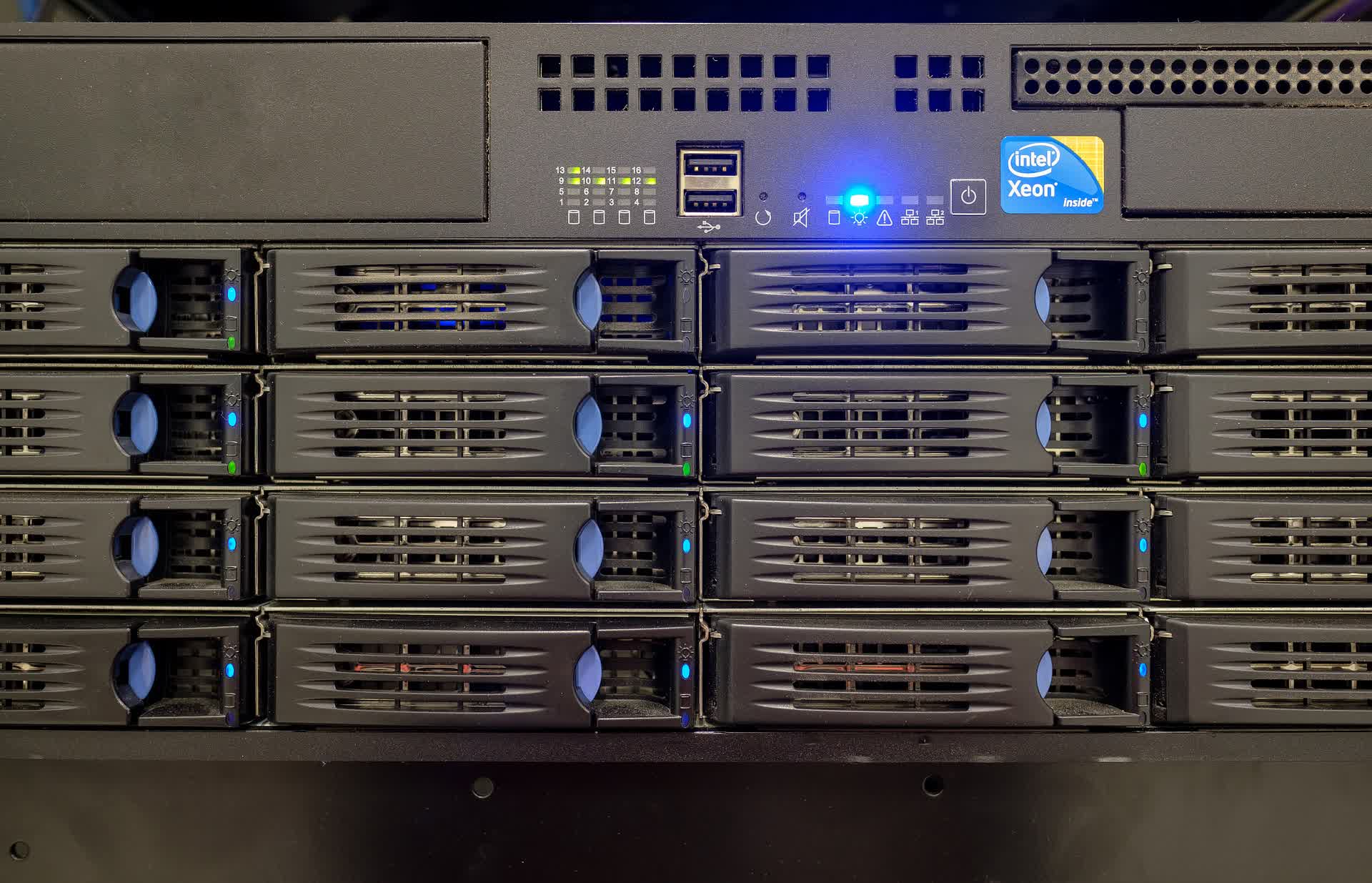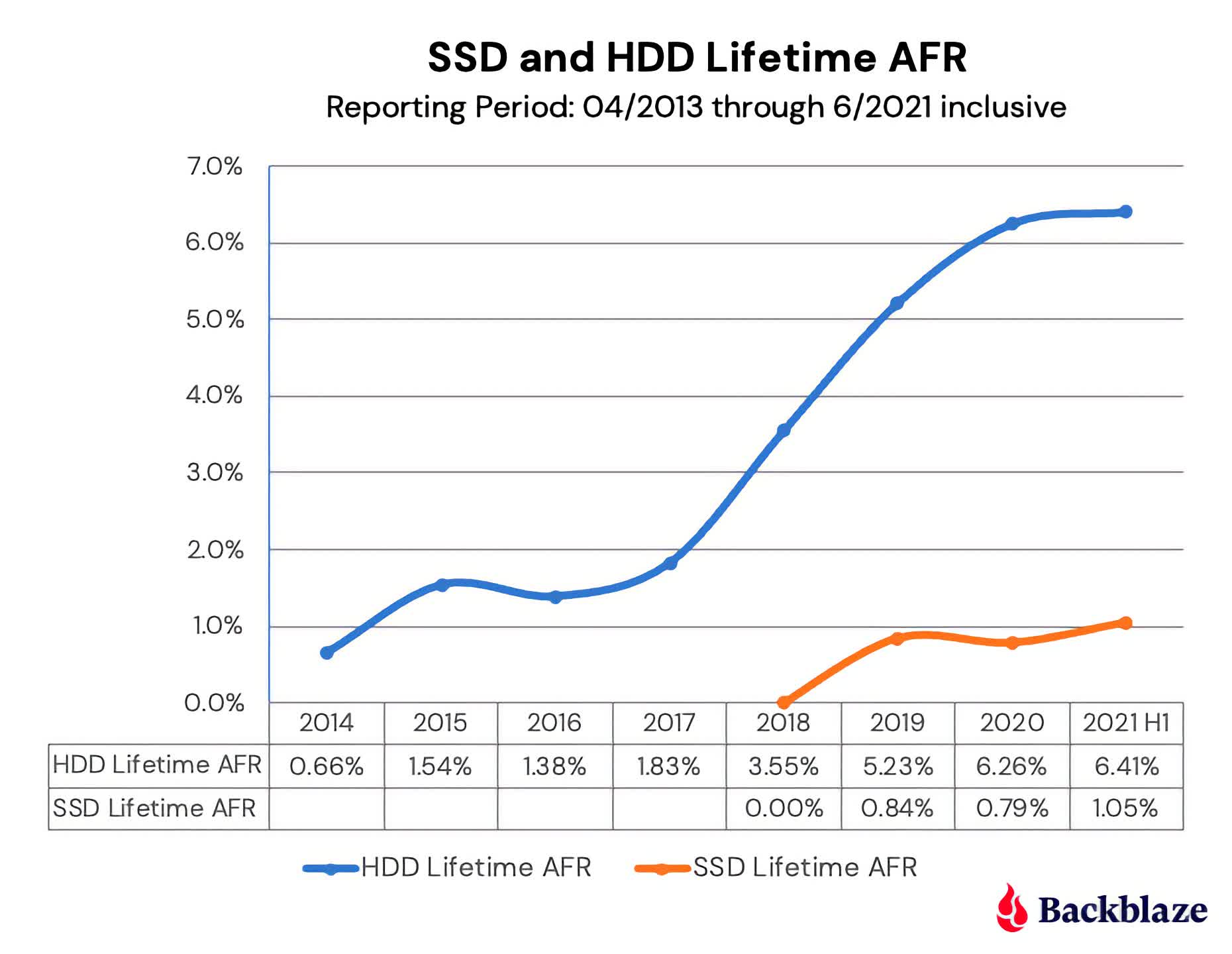A hot potato: For a while now, solid state drives have a become the preferred option over hard disk drives due to a lack of moving components, their inherent magnetic resistance, ability to withstand vibration, and overall durability. However, a recent post from cloud storage provider Backblaze reveals SSD failures trending every bit as high as their HDD counterparts.

Often favored for their increased speed, decreased footprint, and enhanced durability, SSDs have become an industry standard storage alternative for everyone from weekend gamers to data centers. A recent blog post by Backblaze's Andy Klein, however, tells a much different tale regarding their purported reliability and longevity.
Backblaze is a cloud storage and backup provider with four data centers across the US and Europe, and they rely on both SSDs and HDDs for server boot drives, log storage, system diagnostics, and various system reporting tasks. Both types of drives serve the same function in Backblaze's environments and support continuous writing, reading, and file deletion in addition to server startup operations.
In the company's most recent annualized failure rates (AFR) data, they compared statistics for SSDs and HDDs performing the same workloads in the same cloud storage environments. The data tells us that SSDs do in fact experience failure at a rate far lower than the HDDs, however, Klein highlights the fact that many of the HDDs referenced were several years older than their SSD equivalents.

Backblaze's AFR data, which displays failure rates for HDDs beginning in 2014 and SSDs in 2018, reveals a remarkably similar pattern for HDD failure rates (from 2014 through 2017) and SSD failure rates (2018 through 2021). This initial trend paves the way for an interesting question: will the SSD failures continue to trend in a similar fashion? If so, we would expect to see a spike in Backblaze's SSD failure rates in the later quarters of 2021 and continuing for the next several years.
Backblaze regularly publishes findings regarding data center drive failures. While the evidence is far from conclusive, it does raise the question if SSDs are truly more reliable and a better investment than HDDs for specific workloads and scenarios. Until more information becomes available which we'll certainly be reporting back to you, the debate will rage on and the decision will continue to be driven by disk requirements, failure rates, and procurement costs.
Image credit: Thomas Ulrich
https://www.techspot.com/news/91543-backblaze-data-shows-ssd-failure-patterns-trend-hdds.html